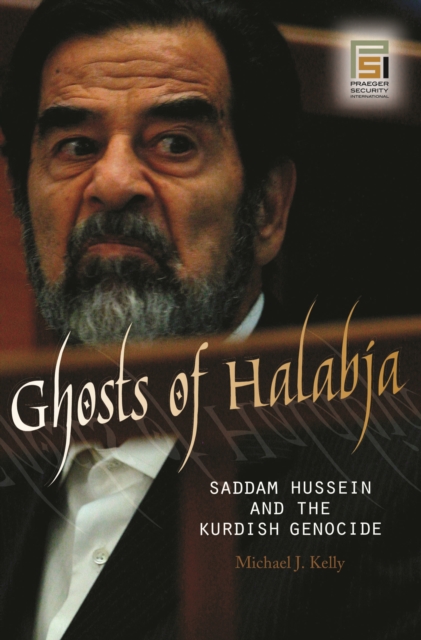
Ghosts of Halabja : Saddam Hussein and the Kurdish Genocide PDF
by Kelly Michael J. Kelly
Part of the Praeger Security International series
Description
Saddam Hussein's execution for his crimes against Iraq's Shia not only brought an end to his reign of oppression, but also to the justice that was to be served to the Iraqi Kurds. The unspeakable atrocities visited by Saddam upon the Kurds of Iraq are explored here, together with the trials of Saddam by the Iraqi High Tribunal. However, this work is more than a litigation history. It is also an exploration of the motivations behind and the depths of organized evil in the context of a single, brutal despot at the helm of an artificially created multi-ethno/religious state lying atop massive oil wealth. Saddam's background and the context of his rule explain much about his actions, but not all. He remained an unpredictable tyrant to the end of his reign.
The Kurds have continually been subject to adversity since the end of World War I, when they were denied their own homeland, splitting them among three countries: Turkey, Iran, and Iraq. During Saddam's 24-year reign, the Kurds of Iraq were frequently under the knife of injustice. Between 1987 and 1989, Saddam unleashed genocide, razing over 2,000 villages and murdering at least 50,000 Kurds. As his dictatorship came to an end, the Kurds long-awaited opportunity to hold Saddam responsible for the atrocities against them seemed to have come, only to be sidetracked by the Iraqi High Tribunal, the Iraqi government, and the U.S. government. While the Shia rejoiced in their victory, the Kurds continued to be left behind. Saddam's death freed him of the charges against him by the Kurds. The world had turned its back on the Kurds in their age of genocide, and now appeared to turn a blind eye to the justice that was denied.
The unspeakable atrocities visited by Saddam upon the Kurds of Iraq are explored here together with the trials of Saddam by the Iraqi High Tribunal-both the completed prosecution for the Dujail massacre against the Shites and the incomplete one for the Anfal Campaigns against the Kurds. However, this work is more than a litigation history. It is also an exploration of the motivations behind and the depths of organized evil in the context of a single, brutal despot at the helm of an artificially created multi-ethno/religious state lying atop massive oil wealth, but situated in the most dangerous part of the world. Saddam's background and the context of his rule explain much about his actions, but not all. He remained an unpredictable tyrant to the end of his reign.
Information
-
Download - Immediately Available
- Format:PDF
- Pages:196 pages
- Publisher:Bloomsbury Publishing (USA)
- Publication Date:30/10/2008
- Category:
- ISBN:9780313083785
Information
-
Download - Immediately Available
- Format:PDF
- Pages:196 pages
- Publisher:Bloomsbury Publishing (USA)
- Publication Date:30/10/2008
- Category:
- ISBN:9780313083785










